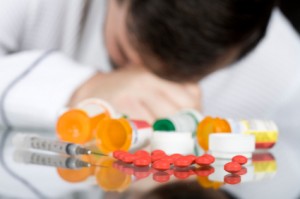Common Practices in Stimulant Addiction Treatment
Dangers of Stimulant Addiction
Stimulant drugs are drugs that stimulate a user’s brain and cause a person’s heart rate to increase while altering their brain chemicals. When a person take a stimulant, such as cocaine or amphetamine, their serotonin levels in their brain will increase, as well as their dopamine levels. When this happens a person will feel happier, more confident and more alert. Stimulants also cause a user to feel awake and more talkative.

Counseling is a helpful and essential part of treatment for stimulant addiction.
According to the Drug Enquirer, in small doses amphetamines can drive out tiredness and make a user feel refreshed and alert. However, the burst of energy comes at a price. A person will crash after the high from amphetamines has worn off, and they may feel irritable, nauseous, depressed and extremely fatigued.
Because a person may thoroughly enjoy the way they feel while on stimulants, and then hate the way they feel when their body no longer has the drug in it, they may begin to abuse the drug more frequently. Consistent stimulant abuse often leads to addiction, and when a person develops an addiction to stimulants, they risk the chance of having a sudden heart attack and causing significant damage to their brain.
Different Stimulant Addiction Treatment Practices
According to the Drug Enquirer, amphetamines have a high risk of abuse and using amphetamines for prolonged periods of time may lead to drug addiction and dependence and should be avoided. Misuse of amphetamines may cause cardiovascular adverse effects and may cause sudden death.
Since the effects of stimulant addiction can be fatal and can cause a person a plethora of health problems, most people want to stop using the drug at some point. There are various treatment options for stimulant addiction, and a person will need to find the right option for them.
The most important practice of stimulant addiction treatment is therapy. Since addiction is a brain disease, and since stimulants alter brain chemicals, a person will have psychological withdrawals once they stop using the drug, and it is important for them to engage in therapy to deal with any emotional issues they may be experiencing. There are different types of therapy a person can engage in, but behavioral therapy has been proven to be the most successful with drug addiction.



